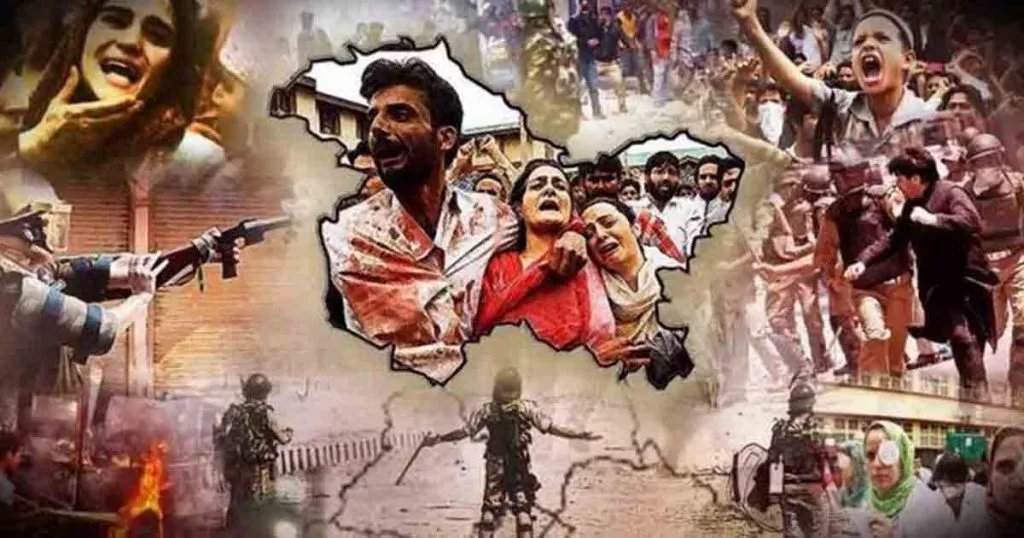“We must learn from history, there is no military solution for the Kashmir issue…. We have to understand this reality” (General Pervez Musharraf)
Seventy-five years have passed since Pakistan and India gained freedom from their British colonial rulers. Despite a shared past of freedom from colonialism, the two succeeding governments have been unable to coexist peacefully. The main point of contention in their bilateral relationship is the ongoing struggle of partition, namely the subject of self-determination for the state of Jammu and Kashmir.
The presence of Indian security forces in occupied Kashmir has resulted in major human rights breaches, which have been viewed as an efficient instrument for suppressing Kashmiri liberation voices.
Until now, the UN Security Council has issued 18 resolutions dealing with the Kashmir dispute, either directly or indirectly. None of the resolutions could be implemented due to India’s uncompromising stance and false promises made to the people of Kashmir and Pakistan’s leaders by Prime Minister Jawaharlal Nehru.
Since 1948, the Indian government has tried a variety of means to repress the Kashmiri people’s fight. Every day, India commits brutalities, homicides, arbitrary detentions, rapes, and humiliations under the cover of a slew of draconian laws and Acts. Indian-occupied Kashmir is one of the world’s most militarized areas. The failure of India to pursue a peaceful resolution to the Kashmir conflict has left the people of Kashmir very concerned and apprehensive about their future, and the prospects for peace between the two South Asian neighbors are poor.
India is undermining the Kashmiri people’s identity via discriminatory policies, laws, and regulations. The soldier’s colonies, the intention to re-settle Hindu Pundits, and now the new domicile regulations are all part of the same chain in which India is depriving Kashmiris of their “Kashmiriat.”
Furthermore, India has signed the International Covenant on Civil and Political Rights (ICCPR). However, this has not stopped it from abusing the law. Article 6, for example, “clearly prohibits deviation from the right to life.” Torture, cruel and inhuman treatment are likewise prohibited by the ICCPR, even in times of emergency. Nonetheless, data obtained by numerous resources reveals the abuses done by Indian officials with little remorse.
Human rights watchdogs and legal agencies have concluded that the Indian military, acting on behalf of the government, is breaching not just international human rights law but also international humanitarian law (law of armed conflict). This statement is not new, since India has a long history of perpetrating such atrocities in the name of politics fueled by religious zeal. The Indian government is required by law to follow the mandatory framework. According to Common Article 3 and Protocol II of the 1949 Geneva Conventions, India has done everything it was not supposed to do. India has captured hostages, humiliated and tortured the region’s people, carried out extra-judicial murders, obstructed trade, and rejected medical help. All of these offences demonstrate how India brags about its misdeeds without fear of repercussions.
India is undermining the Kashmiri people’s identity via discriminatory policies, laws, and regulations. The soldier’s colonies, the intention to re-settle Hindu Pundits, and now the new domicile regulations are all part of the same chain in which India is depriving Kashmiris of their “Kashmiriat.”
Furthermore, India has signed the International Covenant on Civil and Political Rights (ICCPR). However, this has not stopped it from abusing the law. Article 6, for example, “clearly prohibits deviation from the right to life.” Torture, cruel and inhuman treatment are likewise prohibited by the ICCPR, even in times of emergency. Nonetheless, data obtained by numerous resources reveals the abuses done by Indian officials with little remorse.
Only by peaceful measures the Kashmir problem will be resolved permanently. It is also apparent that India would not engage in conversation with Pakistan over Kashmir. Instead, India believes it has effectively settled the Kashmir issue by partitioning the land into three pieces. The inhabitants of Kashmir are of little importance to India. Regardless of whether political party is in power, the area and its strategic position are important to India. The United Nations, whose primary goal is to guarantee and sustain world peace, will have to play an active role in the peaceful resolution of the long-running issue. Pakistan will have to work twice as hard to draw the international community’s attention to the importance of a peaceful resolution of the Kashmir dispute and to prevent India from taking unilateral and illegal steps to merge occupied Kashmir into India, which is completely illegal under international law.
About Author:
Tahama Asad is a graduate of the National Defense University, Islamabad) The views expressed by the writers do not necessarily represent Global Defense Insight’s editorial policy
- Global Defense Insighthttps://defensetalks.com/author/umair/
- Global Defense Insighthttps://defensetalks.com/author/umair/
- Global Defense Insighthttps://defensetalks.com/author/umair/
- Global Defense Insighthttps://defensetalks.com/author/umair/













